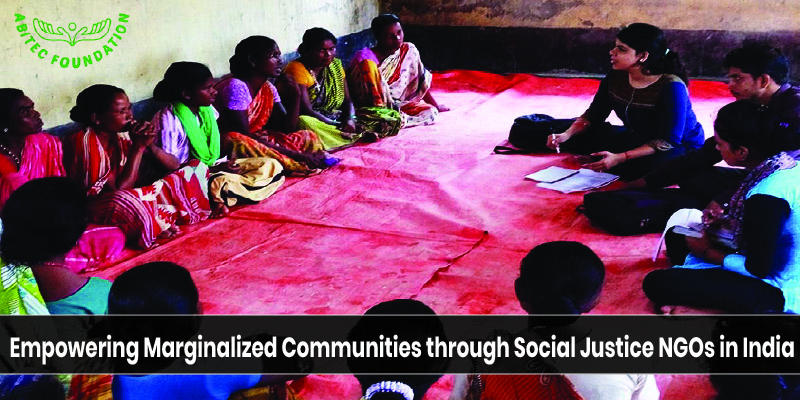India has a lot of diversity, but daily life is still unfair for many people. Schools, healthcare, and basic rights are often hard to reach. NGOs play a big role in creating a fair and inclusive society for everyone. Their dedication and compassion reflect the true essence of community empowerment in India, opening doors for those often overlooked. Their goal is to help people feel confident and take charge of their own futures.
- Driving Change through Local Action
NGOs work with communities, understanding their struggles and needs. They succeed because they stay involved with the communities they support. By running social justice programs, they teach about discrimination, promote equality, and create safe spaces to talk. This helps people understand their rights and gives them the confidence to stand up for themselves.
From helping with schools and healthcare to supporting women, their projects show that real change usually begins within the community.
Read This: Why Domestic Violence Victims Don’t Speak Up and How NGOs Support
- Pioneering Education Initiatives
Education has always been a key area of focus for NGOs. In many underprivileged areas, children still face barriers like poverty, distance, and lack of infrastructure. NGOs use local and creative ideas to make learning fun for children and open to everyone.
They do this by:
- Running free schools, after-school sessions, and mobile classrooms to reach every child who wants to learn.
- Distributing study materials, uniforms, and scholarships.
- Encouraging girl child education in areas where it is often neglected.
These initiatives go beyond textbooks. NGOs bring energy and excitement into learning, sparking curiosity and confidence while teaching practical skills like computer literacy and hands-on training. In doing so, they help children move closer to a future full of choices and hope.
- Innovative Healthcare for Lasting Impact
Access to healthcare continues to be a challenge in many rural and marginalised areas. NGOs lead the way in taking healthcare beyond hospitals and cities. Through mobile clinics, telemedicine, and health awareness drives, they reach people who might otherwise have no access to treatment.
Their work focuses on long-term solutions, such as preventive care and community education. Offering marginalized groups support, NGOs help families make wise health choices and train local health workers so communities can stay healthy on their own.
- Empowering Women to Lead Change
Empowering women through learning, leadership, and financial independence has a ripple effect on families and communities. NGOs across India are helping women step into their strength and potential.
Their programmes often include:
- Self-help groups that promote saving and entrepreneurship.
- Legal awareness and aid for women facing discrimination or abuse.
- Initiatives aimed at ending child marriage and tackling gender-based violence.
By taking part in decision-making and community leadership, women gain more equality while helping to strengthen their entire community.
- Protecting the Environment Together
Many NGOs are turning communities into protectors of their environment. From eco-conscious farming to waste reduction and renewable energy awareness, they are guiding communities toward a more sustainable future. These efforts ensure that people can build livelihoods while preserving the planet.
These projects are a true example of grassroots social change, with local residents joining in to take care of their environment and share responsibility for their communities. In turn, they gain valuable knowledge about sustainability and climate resilience, which benefits both current and future generations.
- Raising Voices for Justice
Advocacy is a powerful part of NGO work. Many organisations help communities express their needs and influence public policies. Through campaigns, public dialogues, and partnerships with local authorities, they bring attention to the issues affecting marginalised groups.
These ongoing efforts demonstrate the real NGO impact in India, shaping fair policies and meaningful programmes. By supporting unheard voices, these organisations ensure that progress reaches every community, not just cities or privileged groups.
Building a Future of Equality
Change takes time, yet NGOs make it real through steady effort and compassion. Their work captures the spirit of community empowerment in India, helping people gain the courage to build their own futures.
To take this spirit forward, Abitec Foundation invites individuals, partners, and volunteers to be part of this movement. Every effort counts, whether it is supporting education, health, or livelihood projects. Together, we can build communities that are stronger, fairer, and full of opportunity for all!
Frequently Asked Questions
- What does community empowerment in India mean?
It means giving marginalised groups access to education, healthcare, and opportunities to improve their lives.
- Why is community empowerment important?
It helps build stronger, fairer communities where everyone has a chance to thrive.
- How do NGOs help create a fair and inclusive society in India?
NGOs work directly with communities to provide education, healthcare, and social programs that empower marginalised groups.


